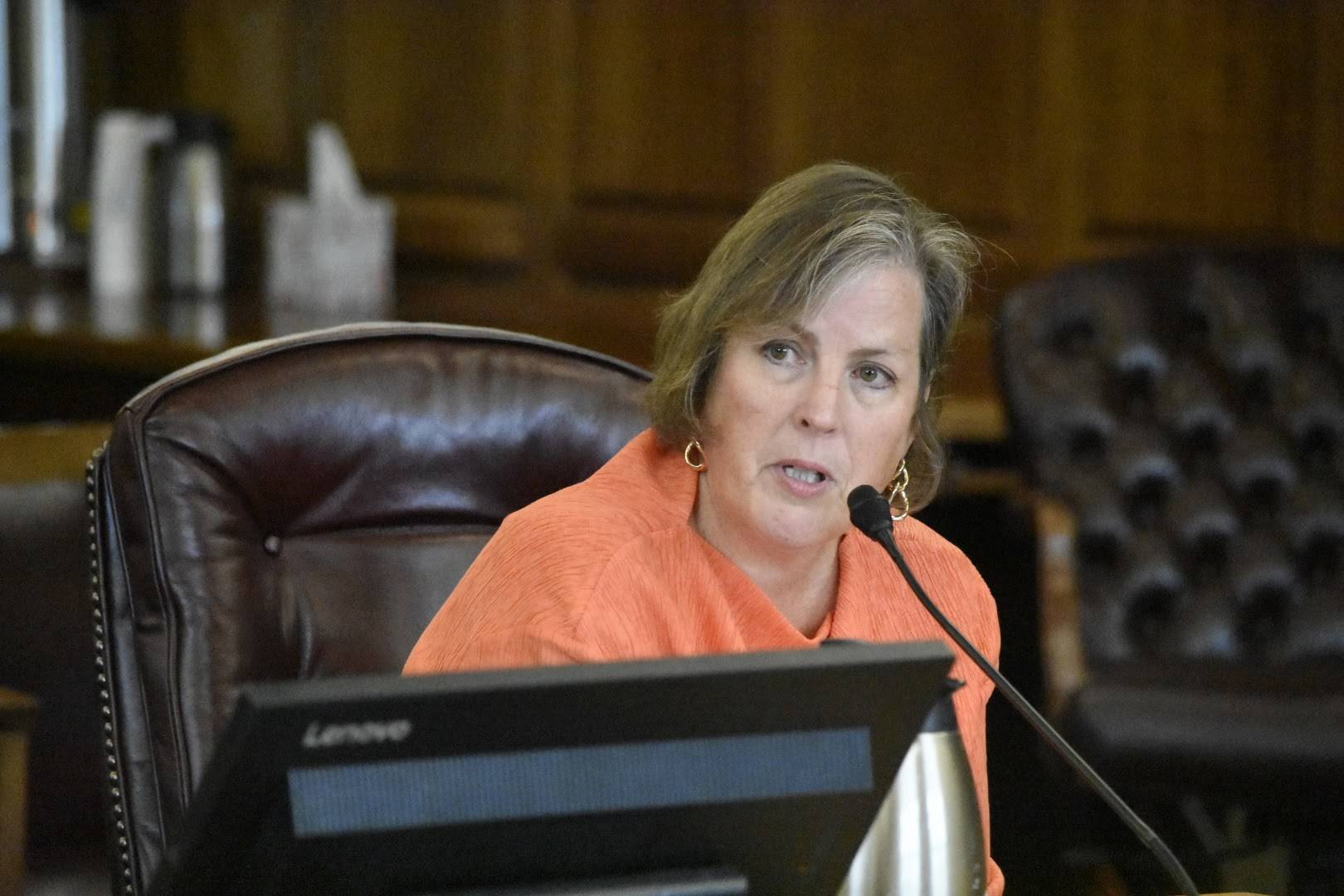Elected officials, business leaders and other Alaskans pleaded with lawmakers to resolve a budget dispute and pass a bill to avert a partial government shutdown.
“I’m urging to take the steps necessary to pass a budget by July 1,” said Angela Rodell, CEO of the Alaska Permanent Fund Corporation
The Department of Administration released a list of government services slated for full or partial shutdown if the Alaska State Legislature and Gov. Mike Dunleavy can’t come to a budget agreement by midnight June 30. Lawmakers started another special session Wednesday but it wasn’t clear an agreement could be reached in time to avoid a government shutdown.
Services to shutdown entirely include Power Cost Equalization payments, Alaska Performance Scholarship grants and a number of certification, training and permitting operations.
The Alaska Marine Highway System will remain fully operational under the plan even though an FAQ sent to state employees Monday said AMHS employees would be laid off.
Other state services will continue operating but with reduced staffing levels. The Department of Health and Social Services has a long list of programs to have reduced staffing during a shutdown. Child care grants, adult public assistance and public health laboratories will be understaffed in a shutdown as will several other federally mandated health programs.
Tourism advertising would cease as well, despite the governor spending federal relief dollars on a tourism campaign for the state.
Office of Management and Budget Director Neil Steininger presented the governor’s shutdown proposal Thursday to the House Finance Committee, telling lawmakers the plan was an updated version of pre-existing plans from previous administrations.
“These are truly untested,” Steininger said, as the plan has never actually been used. “Some of these things will be assessed as we look at implementation.”
[Lawmakers optimistic but vague about budget negotiations]
Administration officials are operating assuming the budget situation will be resolved before July 1, Steininger said, and will not begin winding down state services until a shutdown actually begins.
Not having those grants and services available are disruptive to groups like Aiding Women in Abuse and Rape Emergencies, which runs housing programs for survivors of gender-based violence. A shutdown at the beginning of the fiscal year is particularly disruptive, according to Mandy Cole, AWARE’s executive director.
In a phone interview with the Empire, Cole said AWARE relies on state grants, but without anyone to administer those grants, funding won’t be available until the shutdown ends. Because of the budget situation over the past few years, Cole said AWARE has reserves to keep funding services without state support for at least some time, but if there’s an extended shutdown there will be funding issues in the future.
“I feel relatively assured the money will come,” Cole said, “If there’s not a timeline things get a little confusing.”
Calling on behalf of the Alaska Municipal League, Fairbanks Mayor Jim Matherly thanked lawmakers for their work but expressed frustration at the failure to pass all parts of the budget.
“The failure of those critical votes will critically destabilize local governments,” Matherly said. “It will be a barrier to a much-needed recovery.”
Negotiations continue behind closed doors
There are several avenues available to lawmakers to avoid a government shutdown, but Stutes told reporters Wednesday negotiations were focusing on a reconsideration vote for the effective date clause. That means lawmakers would roll back the first tally and have a new vote.
The initial vote in the House ended 25-15, three short of the tw0-thirds vote needed. Most of the House Republican Minority voted against the budget and the effective date clause, but not all. Rep. Sara Rasmussen, R-Anchorage, wasn’t present for the initial vote but said she would vote for the effective date clause in a reconsideration vote.
Dunleavy introduced a bill Wednesday that closely resembled the budget bill passed by the Senate last month, but it isn’t being considered by lawmakers. Senate President Peter Micciche, R-Soldotna, told reporters Wednesday the Senate had already voted for the budget and date clause, and was standing by to aid the House negotiations.
“I believe passing an effective date would simplify that outcome,” Micciche said, referring to the budget debate.
Neither body had enough votes for still another part of the budget which requires reversing the sweep of funds from state accounts that occurs at the end of each fiscal year. That vote requires three-quarters of both bodies, but Micciche and other lawmakers have said as distasteful as it may be, that vote can wait until August, while a shutdown requires more immediate action to be averted.
“Many Alaskans make their living in the summer,” he said. “I have a very difficult time believing legislators are not going to work together to ensure that we don’t have a government shutdown.”
Another budget bill was introduced in Thursday’s House Finance Committee meeting, but Rep. Bryce Edgmon, I-Dillingham, noted for the record that the bill was not the only way to avoid a shutdown. Edgmon said it was simply another option being put forward.
Both bodies of the Legislature are scheduled to meet late Friday morning, but there was no indication an agreement had been reached on how to proceed.
An Anchorage Superior Court granted Attorney General Treg Taylor’s request for expedited consideration for a ruling in a lawsuit between the governor and lawmakers and said in a court order a decision will come by noon June 30, 12 hours before a shutdown.
• Contact reporter Peter Segall at psegall@juneauempire.com. Follow him on Twitter at @SegallJnuEmpire.

